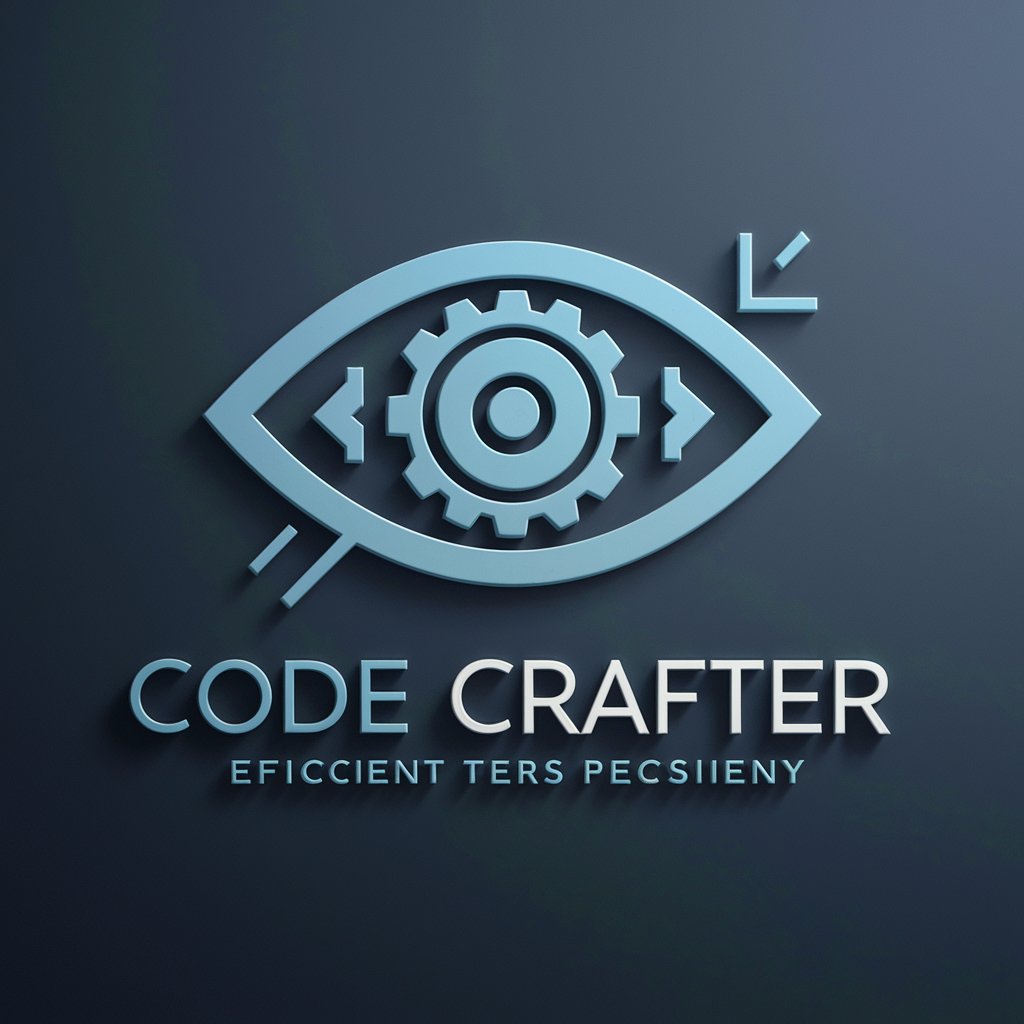TailwindGPT - TailwindCSS Assistance

Welcome to TailwindGPT! Let's make your web design effortless.
Streamline your design workflow with AI
How can I optimize my TailwindCSS build process?
What are the best practices for responsive design with TailwindCSS?
Can you help me debug an issue with my TailwindCSS configuration?
What are the latest updates in TailwindCSS?
Get Embed Code
Understanding TailwindGPT
TailwindGPT is a specialized AI tool designed to assist users with all aspects related to TailwindCSS, a popular utility-first CSS framework. It is adept at providing guidance on using TailwindCSS effectively, including syntax, best practices, troubleshooting, and optimization tips. TailwindGPT excels in explaining complex concepts in a clear manner and offering practical code examples. For instance, if a user is struggling to understand how to implement responsive design with TailwindCSS, TailwindGPT can provide detailed explanations and code snippets showcasing the use of responsive utility classes like 'md:text-center'. Powered by ChatGPT-4o。

Core Functions of TailwindGPT
Syntax Explanation
Example
TailwindGPT can explain specific TailwindCSS classes, such as 'bg-red-500', detailing what it does (applies a specific shade of red as a background color) and how it fits within the TailwindCSS system.
Scenario
A user new to TailwindCSS might not understand the naming conventions. TailwindGPT can break down the syntax, enhancing their understanding and application.
Troubleshooting and Debugging
Example
If a user faces issues where certain styles aren't applying correctly, TailwindGPT can help identify potential causes, like forgotten inclusion of responsive prefixes or misuse of utility classes.
Scenario
A developer is puzzled why 'text-green-600' isn't working on small screens. TailwindGPT could suggest checking if a 'sm:' prefix is needed.
Responsive Design Guidance
Example
TailwindGPT can offer tips and examples on creating responsive layouts using TailwindCSS, such as using 'md:flex' to apply flexbox styles on medium-sized screens and above.
Scenario
A web designer is looking to create a layout that adapts to various screen sizes. TailwindGPT provides guidance on using Tailwind's responsive utilities effectively.
Customization and Optimization Tips
Example
TailwindGPT can advise on customizing TailwindCSS, like creating custom utility classes or configuring Tailwind's theme, to better suit project-specific needs.
Scenario
A team wants to extend Tailwind's default palette to include their brand colors. TailwindGPT can guide them through the process of modifying the Tailwind config file.
Target User Groups of TailwindGPT
Web Developers and Designers
This group includes professionals and hobbyists creating websites. They benefit from TailwindGPT's ability to provide quick, accurate answers to syntax queries, design pattern suggestions, and customization tips, speeding up development and improving design quality.
Beginners in Web Development
Individuals new to web development, especially those learning TailwindCSS, find TailwindGPT valuable for its clear explanations and practical examples, making the learning curve less steep.
Educators and Trainers
TailwindGPT serves as a resource for educators teaching web design and development, offering detailed explanations and examples that can be used in teaching materials or as part of curriculum content.

Using TailwindGPT: A Quick Guide
Start Your Journey
Begin by exploring yeschat.ai for a no-cost trial, bypassing the need for login or a ChatGPT Plus subscription.
Familiarize with TailwindCSS
Gain a basic understanding of TailwindCSS by reviewing its documentation to make the most out of TailwindGPT.
Identify Your Needs
Clarify your questions or the issues you're facing with TailwindCSS to target your queries effectively.
Interact with TailwindGPT
Ask TailwindGPT your questions, ensuring to provide as much context or code examples as possible for precise assistance.
Implement and Experiment
Apply the advice or code examples provided by TailwindGPT, and don't hesitate to iterate based on the feedback or results.
Try other advanced and practical GPTs
DOJO GURU v0.2.2
Empower your game development with AI-driven insights.

Pet Animator
Bring your pet to life with AI

Abstract Editor
Streamlining Scholarly Communication with AI

Lettre de motivation IA
Craft Your Perfect Cover Letter with AI

Code Crafter
Crafting your code, powered by AI

Secure AI Advisor
Empowering Secure and Ethical AI

BestCV
Empowering Your Career with AI-Driven CV Reviews

Dialogue with Yourself
Converse with Emotions, Understand Your Inner Self

Master Key Advanced
Empowering quantum-safe security with AI

Policy Finder
Demystifying Legal Documents with AI

Filmy Captions
Bringing cinema to your images.

BackendGPT
Empowering Your Backend with AI

TailwindGPT Q&A Examples
How can I customize my Tailwind configuration for a unique design?
Customize your Tailwind configuration by editing the 'tailwind.config.js' file. Extend the default theme, add new utilities, or override existing values to tailor the design to your needs.
What's the best way to optimize TailwindCSS for production?
For production, enable PurgeCSS in your 'tailwind.config.js' to remove unused CSS, ensuring a smaller bundle size. Also, consider using JIT mode for faster build times.
Can TailwindGPT help with debugging TailwindCSS issues?
Yes, TailwindGPT can assist in debugging by offering insights into common pitfalls, providing code corrections, and suggesting best practices for using TailwindCSS effectively.
How do I use Tailwind's responsive utilities?
Utilize Tailwind's responsive utilities by prefixing the utility classes with breakpoints, such as 'sm:', 'md:', 'lg:', to apply styles at specific screen sizes.
What are some tips for efficient TailwindCSS usage?
Efficiently use TailwindCSS by leveraging its utility-first approach, customizing your theme, and reusing classes with @apply. Also, regularly review Tailwind's updates for new features.
